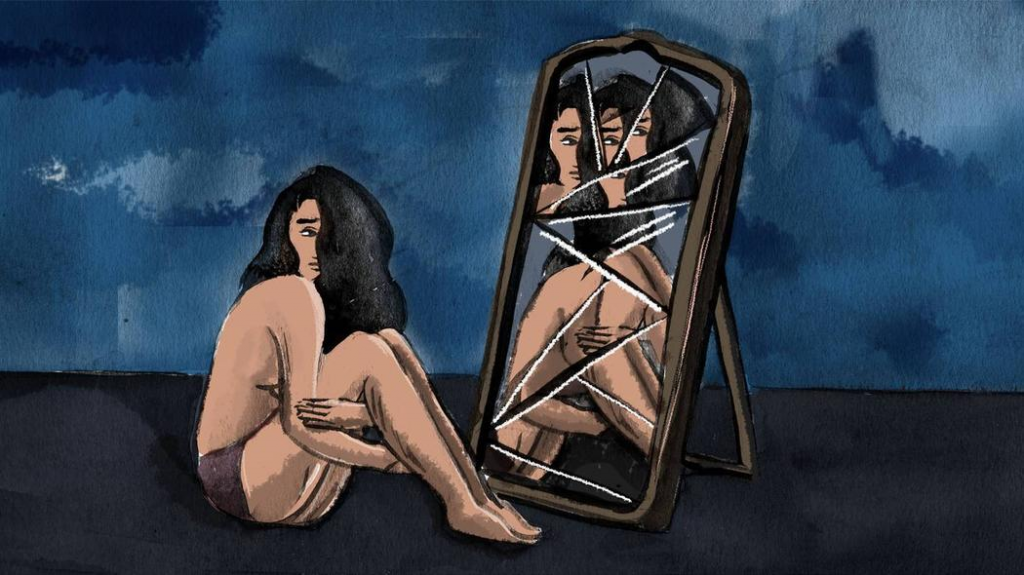
by Rupali Grover – Follow @browngirlmag
South Asian women aren’t immune to having body image concerns, like eating disorders and body dysmorphia. It’s a misconception that only obese people and teenagers struggle with a negative body image. Many adults with body image issues are nowhere near as big or unattractive as they think they are. Having a negative body image isn’t vain or narcissistic. If you ruminate over how you look, here are some tips to start feeling good about who you see in the mirror.
1) Check your stress levels
Ask yourself if you’re stressed out about something. Feeling “fat and ugly” can really mean that you’re feeling overwhelmed, sad angry, fearful, resentful, fatigued, or anxious. The stress you’re feeling carries over into how you feel about your body. People report having a more positive body image when they’re feeling good emotionally. Find out what’s stressing you out and address that first. You may notice a difference in your body image when you’re feeling more relaxed and happy.
2) Losing weight or changing how you look won’t necessarily solve the problem
When someone asks for advice, the first thing that some well-intentioned people may do is to say: “Why don’t you lose 10 pounds to feel better?”, or “Why don’t you try this cosmetic procedure?” But a person could become 90 pounds and STILL feel overweight. A person can get plastic surgery and still be unhappy over a different physical feature. This goes to show that body image problems concern much more than what one actually looks like.
[Read Related: Dear Brown Girls Who Were Bullied: Here are Five Things to Know]
3) Your BMI isn’t the end of the world
People may freak out when they look at their body mass index (BMI). They think they’re fat, just because an outdated height and weight chart said so. But BMI doesn’t look at how a brown woman may carry her weight in her hips, thighs, and breasts. It doesn’t look at her muscle tone. While BMI may be true for SOME people, it’s not accurate for each woman with a pear-shaped or hourglass figure.
4) People’s opinions aren’t facts
Our brown parents reinforced the “What will people think?” mentality, which can leave us vulnerable to what people tell us. If you’re like me, you probably weren’t told that people’s opinions aren’t evidence-based facts. Your grandmother could say your skin isn’t light enough, but then your boyfriend loves your skin color. Your cousin tells you that you look better with straight hair, but you get compliments on your naturally curly hair. See how people have different preferences? It’s all subjective.
Start noticing your thoughts about your body. See if you can change the script you tell yourself. You get to decide what you want to think about how you look, despite what the media and naysayers tell you. The way you talk to yourself can impact how you see yourself in the long run. The more you feel good about yourself on the inside, the better you will feel about your outer shell. At the end of the day, you’re a lot more than how you look.
 Rupali Grover is a licensed clinical professional counselor who has worked with survivors of sexual assault and trauma. You can catch her writing on elephantjournal.com, introvertdear.com, and survivortoday.org.
Rupali Grover is a licensed clinical professional counselor who has worked with survivors of sexual assault and trauma. You can catch her writing on elephantjournal.com, introvertdear.com, and survivortoday.org.




